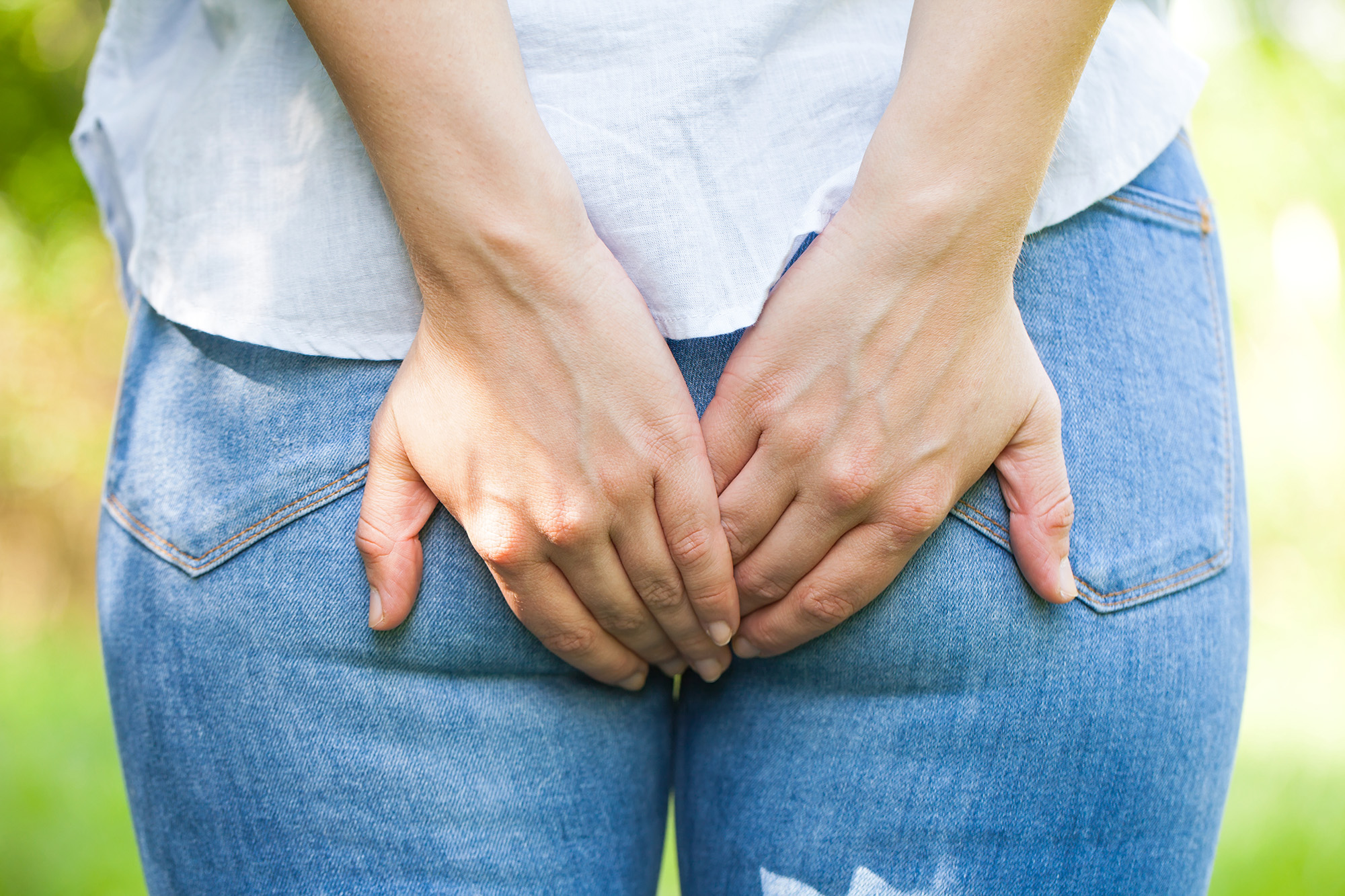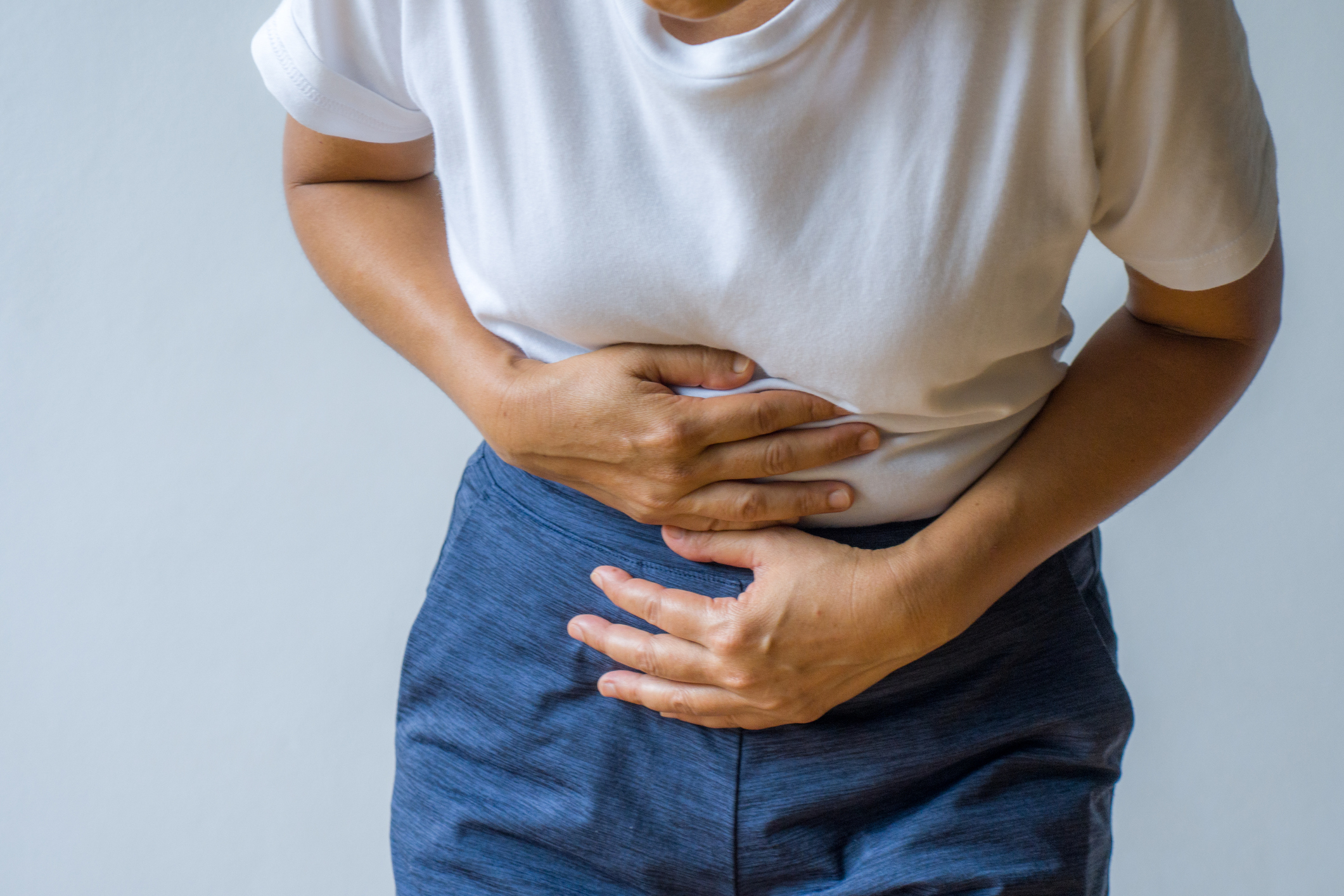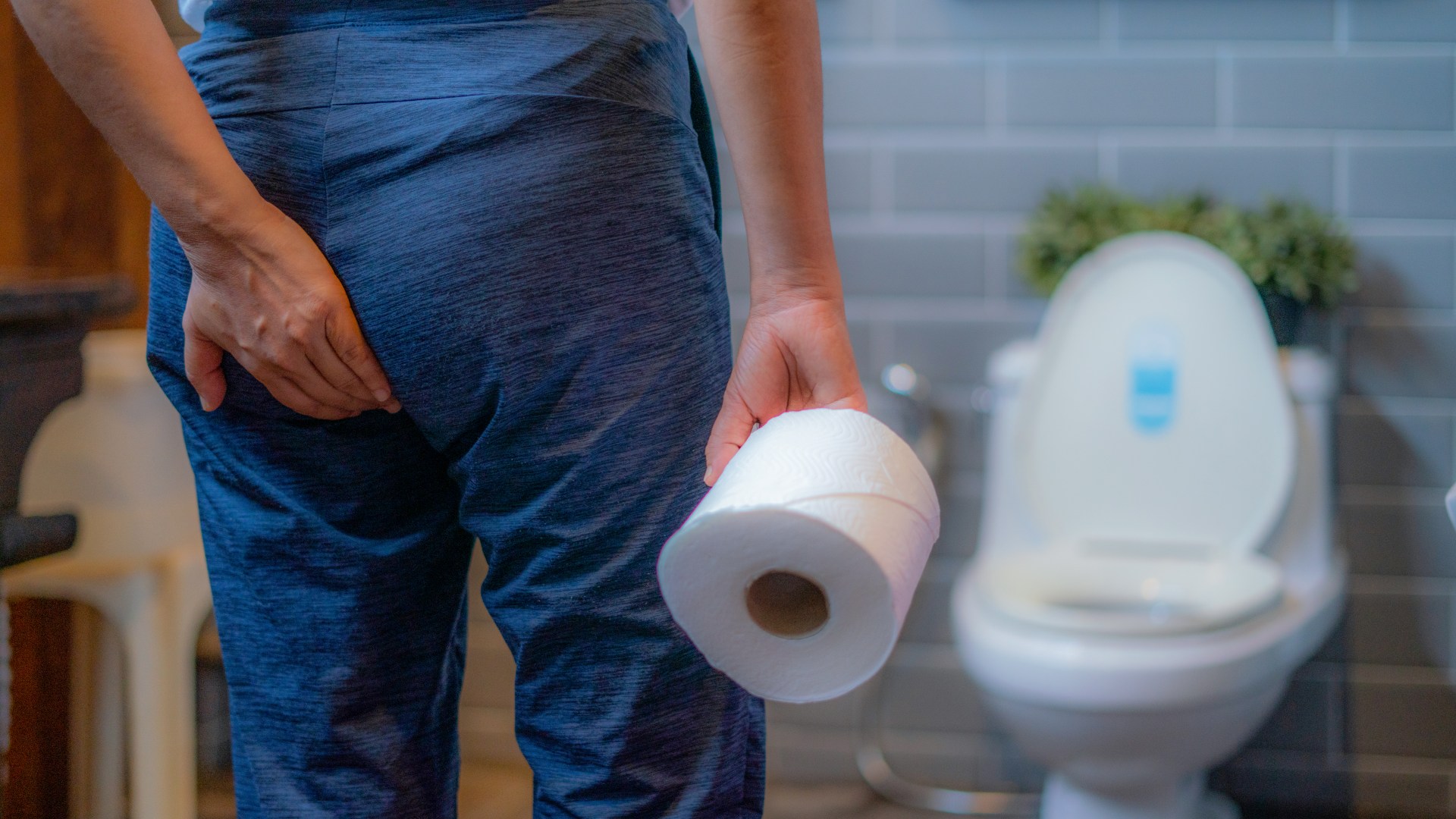

FAQs
When You Fart And Clear Liquid Comes Out
Published: July 31, 2023
Find answers to common questions about farting and clear liquid discharge. Understand the causes and remedies for this embarrassing bodily function.
(Many of the links in this article redirect to a specific reviewed product. Your purchase of these products through affiliate links helps to generate commission for Under-tec.com, at no extra cost. Learn more)
Table of Contents
Introduction
Farting, the passing of gas from the digestive system through the rectum, is a natural bodily function that everyone experiences. While it is often a source of humor or embarrassment, it’s a normal part of the digestive process and helps to release excess air and waste from the body.
However, there are instances where farting can be accompanied by the release of clear liquid. This can be concerning for some individuals and may lead them to wonder if it’s a sign of a more serious underlying condition.
In this article, we will explore the phenomenon of clear liquid coming out when farting. We will discuss the common causes, whether it is normal or not, when to seek medical attention, and preventive measures.
It’s important to note that while this article aims to provide helpful information, it should not replace the advice of a qualified healthcare professional. If you’re experiencing concerning symptoms or have any health-related questions, it’s best to consult with a doctor.
Understanding farting and its causes
Farting, also known as flatulence, is the release of gas that builds up in the digestive system. It is a normal bodily function and can occur multiple times throughout the day. When we eat or drink, we swallow air along with the food and liquid. Additionally, the digestive process produces gas as it breaks down food.
The gas that is produced in the digestive tract consists primarily of oxygen, nitrogen, carbon dioxide, hydrogen, and methane. These gases are typically odorless and are expelled from the body through the rectum. However, the presence of certain substances, such as sulfur compounds, can give gases an unpleasant odor.
There are several factors that can contribute to increased gas production and more frequent farting. These include:
- Diet: Certain foods and beverages, such as beans, lentils, cabbage, onions, carbonated drinks, and dairy products, can be harder to digest and may cause increased gas production.
- Swallowing air: Eating or drinking too quickly, chewing gum, smoking, or using a straw can result in swallowing excess air, which can lead to increased flatulence.
- Bacterial fermentation: When food is not fully digested in the small intestine, it travels to the large intestine where it is broken down by bacteria. This process can produce gas as a byproduct.
- Intestinal disorders: Conditions such as irritable bowel syndrome (IBS), inflammatory bowel disease (IBD), and lactose intolerance can cause increased gas production and more frequent farting.
It’s important to note that while farting is a normal bodily function, excessive or foul-smelling flatulence could be a sign of an underlying digestive issue. If you frequently experience excessive gas, abdominal pain, bloating, or changes in bowel movements, it’s advisable to consult with a healthcare professional for a proper diagnosis and treatment.
Common causes of clear liquid coming out when farting
Experiencing the release of clear liquid when farting can be concerning and may raise questions about its underlying causes. While every individual’s body is unique and may have specific variations, there are a few common reasons why this may occur.
1. Mucus accumulation: The lining of the intestines produces mucus to protect and lubricate the digestive tract. In some cases, excessive mucus may accumulate, leading to its expulsion during flatulence. This can be due to factors like inflammation or irritation in the gastrointestinal tract, infections, or dietary intolerance.
2. Rectal discharge: Sometimes, the clear liquid that is released when farting may not actually be liquid stool but rather rectal discharge. Rectal discharge can occur due to various reasons, such as anal fissures, hemorrhoids, rectal infections, or inflammation.
3. Increased fluid intake: If an individual has recently consumed a large amount of fluids, particularly water, it can contribute to the presence of an increased liquid component when passing gas. The excess liquid gets mixed with the gases in the digestive system and can be expelled during flatulence.
4. Anal sphincter dysfunction: The anal sphincter is a muscle that helps control the passage of gas and stool. Dysfunction of this muscle, which can be caused by conditions such as rectal prolapse or weakened pelvic floor muscles, can result in the leakage of not only gas but also clear liquid during farting.
5. Excessive sweating: In some cases, excessive sweating in the perineal area (area between the anus and genitals) can contribute to the presence of clear liquid when passing gas. This can occur due to factors like physical activity, warm weather, or hormonal changes.
It’s important to mention that while clear liquid coming out when farting can sometimes be normal, if it is accompanied by other concerning symptoms such as blood, pus, or foul odor, it’s recommended to consult a healthcare professional for proper diagnosis and appropriate treatment.
Is clear liquid coming out when farting normal?
The presence of clear liquid when farting can be a cause for concern, but it is important to understand that it can sometimes be considered normal and not indicative of a serious underlying condition. In many cases, the clear liquid is just a result of bodily processes and does not necessarily require medical intervention.
As mentioned earlier, the release of mucus or rectal discharge during farting can be a common occurrence. Mucus is a natural substance produced by the intestines to protect and lubricate the digestive system. Under certain circumstances, like when there is inflammation or irritation, excess mucus can accumulate and be expelled during flatulence.
Additionally, certain lifestyle factors, such as increased fluid intake or excessive sweating in the perineal region, can contribute to the presence of clear liquid when passing gas. These factors are usually temporary and do not signify a severe health issue.
However, it is important to pay attention to other accompanying symptoms or changes in bowel habits. If the clear liquid is accompanied by blood, pus, strong odor, or persistent discomfort, it may indicate an underlying problem that requires medical attention. In such cases, it is advisable to consult with a healthcare professional for a proper evaluation and diagnosis.
It’s worth noting that everyone’s body is unique, and individual variations may occur. If you are unsure or concerned about the presence of clear liquid when farting, it is always best to consult with a healthcare professional who can provide personalized advice and guidance based on your specific situation.
When to see a doctor
While the occasional occurrence of clear liquid when farting might not be a cause for immediate concern, there are certain situations where it is advisable to seek medical attention. Consulting with a healthcare professional can help identify any underlying conditions and provide appropriate treatment if necessary.
If you experience any of the following symptoms along with the release of clear liquid during farting, it is recommended to schedule an appointment with a doctor:
- Persistent or severe discomfort: If you are consistently experiencing abdominal pain, cramping, or bloating, it may indicate an underlying digestive issue that requires further evaluation.
- Change in bowel habits: Any sudden or significant changes in bowel movements, such as diarrhea, constipation, or alternating patterns, should not be ignored and should be discussed with a healthcare professional.
- Blood or pus: The presence of blood or pus in the clear liquid released when farting is not normal and can indicate various conditions, including infections, hemorrhoids, or inflammatory bowel disease.
- Strong odor or unusual color: While flatulence can sometimes have a mild odor, if the clear liquid expelled during farting has a strong, foul smell or an unusual color, it may be a sign of an underlying issue.
- Other concerning symptoms: If you experience unexplained weight loss, chronic fatigue, recurrent fevers, or persistent gastrointestinal symptoms, it is advisable to consult with a doctor to investigate the underlying cause.
Remember, it’s always better to seek medical advice if you are unsure or concerned about any symptoms you are experiencing. A healthcare professional can perform a thorough evaluation, conduct necessary tests, and provide an accurate diagnosis to guide appropriate treatment.
Preventive measures and lifestyle changes
While clear liquid coming out when farting might not always be preventable, there are some preventive measures and lifestyle changes that can help reduce its occurrence or manage any underlying conditions contributing to the symptom. Here are some tips to consider:
- Dietary modifications: Pay attention to your diet and identify any foods or beverages that seem to aggravate your symptoms. For some individuals, certain gas-producing foods like beans, cruciferous vegetables, and carbonated drinks can be a trigger. Consider reducing or avoiding these items and maintaining a well-balanced and fiber-rich diet.
- Eating habits: Eating slowly and chewing food thoroughly can decrease the amount of air swallowed while eating, reducing gas production. Avoid gulping down food or drinking through a straw, as these actions can contribute to swallowing excess air.
- Identify food intolerances: If you suspect that certain foods are causing digestive discomfort and increased gas production, consider keeping a food diary to track your symptoms and identify any potential food intolerances or sensitivities. Consult with a healthcare professional or registered dietitian to help guide you through an elimination diet if necessary.
- Manage stress: Stress can have a significant impact on digestive health. Practice stress-reducing techniques, such as deep breathing exercises, meditation, regular physical activity, and getting enough sleep, to help maintain a healthy gut.
- Stay hydrated: Adequate hydration is important for overall digestive health. Drink plenty of water throughout the day to ensure proper bowel movements and help prevent constipation, which can contribute to increased gas and discomfort.
- Exercise regularly: Regular physical activity can help stimulate healthy digestion and reduce gas buildup. Incorporate activities like walking, jogging, swimming, or yoga into your routine to promote optimal digestive function.
- Seek professional help: If you suspect an underlying digestive condition or have concerns about the clear liquid coming out when farting, it is always best to consult with a healthcare professional. They can provide a proper diagnosis, recommend appropriate treatment, and offer personalized advice based on your specific situation.
Remember, everyone’s body is unique, and what works for one person may not work for another. It may take some trial and error to find the preventive measures and lifestyle changes that best suit your needs. Be patient, listen to your body, and consult with a healthcare professional for guidance along the way.
Conclusion
Farting is a natural bodily function that helps release excess gas and waste from the digestive system. While it is normal to experience gas and occasional variations in flatulence, the release of clear liquid when farting can be a cause for concern.
In most cases, the presence of clear liquid during flatulence is not a sign of a serious underlying condition. It can be attributed to factors such as mucus accumulation, rectal discharge, increased fluid intake, anal sphincter dysfunction, or excessive sweating in the perineal area.
However, it is important to pay attention to accompanying symptoms, such as persistent discomfort, changes in bowel habits, blood or pus in the liquid, strong odor, or unusual color. These symptoms may indicate an underlying issue that requires medical attention.
In order to manage and reduce the occurrence of clear liquid coming out when farting, you can implement preventive measures and lifestyle changes. This can include dietary modifications, mindful eating, identifying food intolerances, managing stress, staying hydrated, exercising regularly, and seeking professional help when necessary.
It’s essential to remember that everyone’s body is unique, and what works for one person may not work for another. If you have concerns or uncertainties, it is always best to consult with a healthcare professional for personalized advice and guidance.
By understanding the causes, knowing when to seek medical attention, and making appropriate lifestyle adjustments, you can maintain digestive health and alleviate any discomfort associated with clear liquid coming out when farting.










